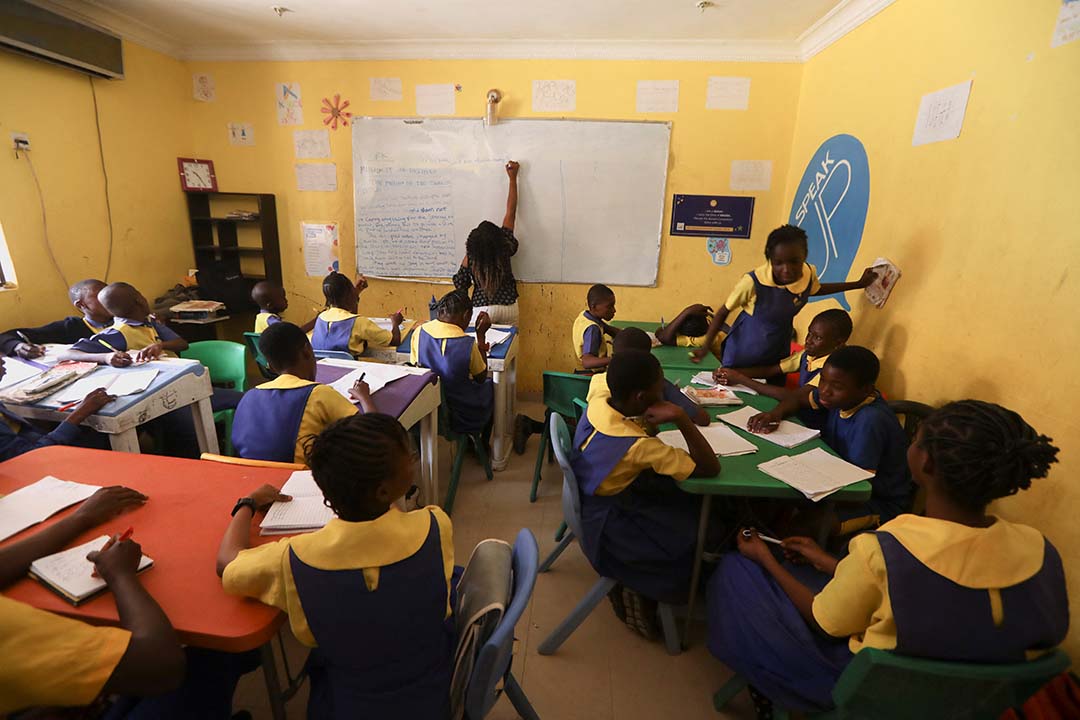The education sector in Nigeria
Nigeria’s education sector: development challenges and opportunities
Education is one of the most fundamental pillars for the development of any society, and in Nigeria, the education sector plays a vital role in shaping the future of the country. Despite the constant efforts to improve the education system, it still faces many challenges. This article sheds light on the education sector in Nigeria, the challenges it faces, and the opportunities to improve it.
Overview of the education system in Nigeria
The education system in Nigeria consists of several stages, including primary education, secondary education, and higher education. The Nigerian government is responsible for providing free and compulsory primary education, while secondary and higher education are funded through a combination of government and private funding.
Primary education
Primary education in Nigeria is compulsory and free of charge for children between the ages of 6 and 12. This stage is aimed at providing children with the basic knowledge and skills necessary for the transition to secondary education. The curriculum focuses on reading, writing, arithmetic, as well as other subjects such as science and social studies.
Many primary schools in Nigeria suffer from a lack of proper infrastructure. Classrooms are often overcrowded, and schools lack basic sanitation facilities such as clean restrooms. Schools are also facing shortages of basic educational materials such as textbooks, teaching aids, and benches.
Secondary education
Secondary Education consists of two stages: lower secondary (junior) and upper secondary (senior). Education at this stage focuses on providing a comprehensive education that includes sciences, mathematics, languages, humanities, as well as vocational and technical subjects that prepare students for the labor market or higher education.
Secondary schools face structural challenges similar to those faced by primary schools. Classrooms are often insufficient to accommodate the growing number of students. Teachers at this stage are often not sufficiently trained to cope with a diverse and intensive curriculum. In addition, schools have a shortage of science laboratories, libraries, and other educational resources that support a comprehensive education.
Higher education
Nigeria has a large number of universities and technical institutes offering educational programs in various fields, from humanities and social sciences to natural sciences and engineering. These institutions include public and private universities that strive to provide high-quality education and achieve high academic standards.
The Nigerian government seeks to promote research and innovation in universities by providing funding and support for scientific research. Universities encourage research in diverse fields including medicine, technology, agriculture, and Social Sciences. However, these institutions face significant challenges related to lack of funding, research infrastructure, and advanced laboratories. Many universities lack modern equipment and the necessary support to carry out innovative scientific research.

The main challenges facing the education sector in Nigeria
Lack of funding
Lack of funding is one of the biggest challenges facing the education sector in Nigeria. Despite government efforts to increase the budget allocated for education, this budget is still insufficient to meet the growing needs of the educational system. Lack of funding negatively affects the quality of education by limiting the ability of schools to provide the necessary resources and appropriate infrastructure.
Some educational institutions rely on external funding from international organizations and charities, which creates challenges in the sustainability and independence of funding. Dependence on external financing makes the educational system vulnerable to global economic and political fluctuations.
Lack of qualified teachers
The educational system in Nigeria suffers from an acute shortage of trained and qualified teachers. Teacher training programs are often inadequate or up-to-date to meet the needs of modern education. As a result, many teachers lack the necessary skills to provide high-quality education.
Teachers in Nigeria are experiencing difficult working conditions that include low salaries and a lack of educational resources. These conditions negatively affect their performance and job satisfaction, which leads to a decrease in the quality of education and an increase in teacher turnover.
Inadequate infrastructure
Many schools suffer from a lack of proper infrastructure, including classrooms, libraries, laboratories. Many schools suffer from overcrowding, dilapidated buildings, lack of basic facilities such as clean water and toilets.
The technology infrastructure in many schools remains weak, which limits the ability of students to access digital educational resources and take advantage of modern educational technologies. Schools that lack computers and internet connectivity have difficulty delivering effective digital education.
Regional disparities
There is a huge disparity in the quality of education between urban and rural areas in Nigeria. Schools in rural areas often lack basic resources, resulting in lower enrollment and graduation rates compared to urban areas.
Girls in some regions face additional challenges in accessing education due to cultural and economic factors. The disparity in enrollment rates between males and females negatively affects socio-economic development and limits women’s opportunities for active participation in society.

Opportunities to improve the education sector in Nigeria
The government should increase investment in the education sector to ensure that the necessary resources are provided to improve infrastructure, train teachers, and provide educational materials. Increased funding can contribute to improving the quality of education and enhance the chances of academic success for students.
Education can be promoted through public-private partnerships. Private companies and foundations can provide financing and support for education projects, such as building schools, providing technology, and implementing teacher training programs.
Continuous training programs should be provided for teachers to improve their teaching skills and ensure that their knowledge is updated with modern teaching methods. Such programs can include training in digital technologies and interactive teaching methods.
Working conditions for teachers should be improved by increasing salaries, providing educational resources, improving the working environment. Improving working conditions can contribute to increasing teacher satisfaction and motivate them to perform well.
Emphasis should be placed on the construction and maintenance of schools throughout Nigeria to ensure that students are provided with a suitable learning environment. Infrastructure investment includes the construction of new classrooms, the modernization of existing buildings, the provision of basic facilities such as clean water and toilets.
Education can be enhanced by the provision of modern technology in schools, including computers and the internet. Digital education can provide diverse educational resources, facilitate access to information and promote self-learning.
Policies aimed at improving the quality of education in rural areas should be implemented, including the provision of infrastructure, teacher training, and the provision of educational materials. Improving education in rural areas can contribute to reducing inequalities and increasing enrollment and graduation rates.
Initiatives should be adopted to support girls ‘ education and address the cultural and economic barriers that prevent them from attending school. These initiatives can include awareness campaigns, providing incentives to families, and providing educational programs specifically for girls.
The education sector in Nigeria is facing significant challenges that require sustained efforts from the government, civil society and the private sector. By increasing investment in education, improving teacher training, developing infrastructure, and addressing regional disparities, Nigeria’s education system can witness significant improvement. Promoting education in Nigeria is not only a national priority, it is an investment in the country’s future and a generation
You can visit the AHAD website to find out more about the projects it offers
ALSO READ
WHAT THE FOOD BASKET CONTAINS IN AHAD
Join us in our message




